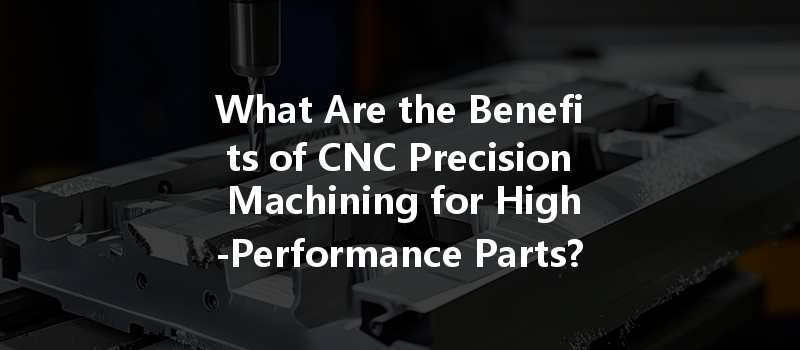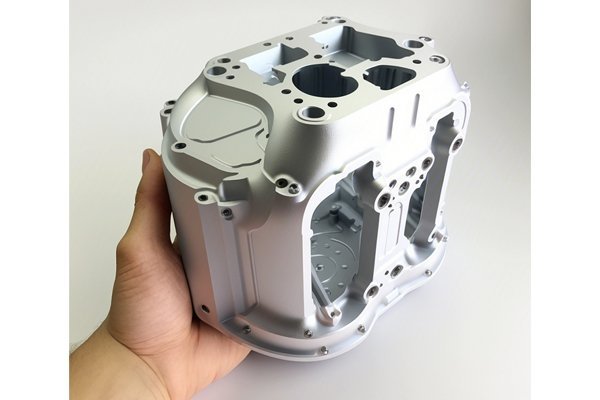Beginning: The Fascinating World of Precision Engineering
Did you know that CNC (Computer Numerical Control) machining has revolutionized the manufacturing industry to the point where it can achieve tolerances as tight as ±0.0001 inches? This level of precision is remarkable—not just a number, but a testament to the intricate and highly automated processes behind modern manufacturing. CNC precision machining is at the forefront of creating high-performance parts for various industries, including aerospace, automotive, and medical technologies. As we explore the benefits of CNC precision machining for high-performance parts, you’ll discover how this technology is more than just a buzzword; it’s a critical component in producing items you interact with every day.
Understanding CNC Precision Machining
CNC precision machining involves using computer-controlled machines to remove material from a workpiece. By following predefined programs, CNC machines can produce intricate designs and high-performance parts with remarkable precision. Unlike traditional machining methods, CNC technology allows for the automation of the manufacturing process, reducing human error and speeding up production times significantly.
Key CNC Machining Processes
The Advantages of CNC Precision Machining for High-Performance Parts
Let’s delve deeper into the specifics of why CNC precision machining is increasingly becoming the go-to solution for manufacturers focusing on high-performance parts.
The explicit advantage of CNC machining is its ability to achieve high levels of precision and repeatability. This is critical in industries where even the slightest deviation can lead to catastrophic failures, such as aviation and medical device manufacturing. By utilizing advanced software and programming, manufacturers can create parts that meet stringent specifications.
In the manufacturing world, time is money. CNC machining enhances efficiency through its automated processes, which means that parts can be produced faster than by traditional methods. CNC machines can run 24/7 with minimal supervision, leading to reduced lead times for high-performance parts. This is a game-changer for businesses that prioritize quick turnaround times.
Highly complex parts, such as those used in aerospace applications, can be challenging to produce using manual methods. CNC machining allows for the design of complex geometries that are often impossible to achieve by hand. With sophisticated CAD (Computer-Aided Design) software, engineers can create highly intricate designs that CNC machines can execute with ease.
CNC precision machining is adaptable to a wide range of materials, including metals, plastics, and composites. This means that manufacturers can achieve high-performance parts in various sectors without being limited by material compatibility. Areas such as aerospace often require a combination of lightweight materials and durability, both of which can be accomplished through CNC processes.
While human expertise is invaluable in the manufacturing process, mistakes can lead to significant costs and delays. CNC machines minimize human error through programmed precision. Once the program is properly set up, the machine can operate independently, producing high-quality parts that meet specifications without the risk of human oversight.
While the initial setup costs for CNC machining may be higher than traditional machining methods, the long-term benefits often justify this expense. For high-volume production, CNC precision machining becomes increasingly cost-effective as the cost per part decreases due to the efficiency and speed of the process.
As businesses grow, their manufacturing needs often change. CNC machining offers scalability that allows companies to adapt their production levels according to demand quickly. Whether producing a small batch of prototypes or ramping up for mass production, CNC machines can adjust, minimizing downtime in the manufacturing process.
Applications of CNC Precision Machining

Delving into real-world applications can provide further insight into how CNC precision machining benefits various high-performance sectors.
In the aerospace sector, the stakes are incredibly high when it comes to part precision. Components like turbine blades, fuel injectors, and landing gear need to meet strict safety and performance standards. CNC precision machining ensures that these components are manufactured with exact specifications, enhancing performance and safety.
High-performance automotive components require durability and precision. From engine block components to braking systems, the ability to produce parts with tight tolerances ensures that vehicles not only perform well but also comply with strict regulations.
The medical device industry demands absolute precision, especially in surgical instruments, implants, and prosthetics. CNC machining helps ensure that these products meet regulatory standards while enabling the intricate designs often required in medical applications.
The electronics industry necessitates small, intricate components that must fit together perfectly to ensure device functionality. CNC precision machining caters to this need, helping to produce high-performance electronic parts with unrivaled accuracy.
Emerging Trends in CNC Precision Machining
As technology continues to evolve, so does the realm of CNC precision machining. Here are some trends that are shaping the future of manufacturing.
Artificial Intelligence (AI) and Machine Learning are beginning to enter the landscape of CNC machining. These technologies can analyze data from the manufacturing process to optimize performance, predict failures, and ensure greater efficiency.
As new materials are developed, CNC machines are being adapted to handle them. Advanced composites and lightweight alloys are now being integrated into the manufacturing process, allowing for the production of innovative solutions that meet high-performance standards.
Sustainability is becoming a focus for many manufacturers. CNC machining can contribute to greener practices by minimizing waste, optimizing material use, and enabling recycling of components.
With the rise of individualized products, manufacturers are utilizing CNC precision machining for customizable solutions. Easily adaptable, CNC machines can produce small batch sizes that cater to specific consumer needs effectively.
: The Power of CNC Precision Machining
CNC precision machining stands at the forefront of modern manufacturing, providing substantial benefits across various industries focused on producing high-performance parts. From enhanced precision and efficiency to reduced human error and scalability, these technology-driven solutions are paving the way for innovations we depend on daily.
As technology continues to evolve and adapt, the advantages of CNC precision machining will only broaden. Businesses looking to excel must embrace these advancements, ensuring they remain competitive in increasingly demanding markets. By understanding and leveraging CNC precision machining, you can improve operational efficiency, deliver high-quality products, and ultimately contribute to the advancement of your particular industry.
Reflecting on the discussion, it’s clear that CNC precision machining is not merely a manufacturing method; it embodies the future of operational efficiency and precision in production. As we navigate through rapid technological advancements, investing in CNC machining capabilities is not just a choice but a strategic necessity. Maintaining an understanding of this dynamic field allows manufacturers to seize opportunities for growth and innovation.
This exploration into the benefits of CNC precision machining reminds us of its importance in the broader context of manufacturing excellence. As industries continue to evolve, harnessing the true potential of this technology will cultivate a roadmap to success for high-performance part manufacturing.
Now, more than ever, it’s time to rethink manufacturing paradigms and harness the power of CNC precision machining to drive efficiency and success in your projects.






